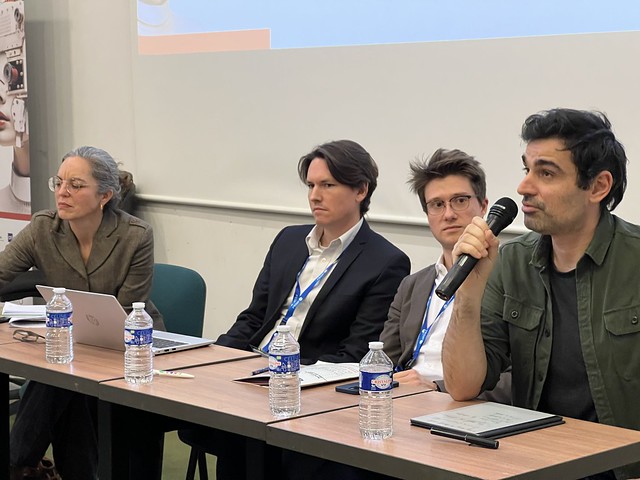With Vincent BERTHIER (France), head of the technology desk of Reporters Without Borders, Oliver HAYES (United Kingdom), Climate Action Against Disinformation (CAAD), and Gianluca DOTTI (Italy), freelance science journalist, member of the European Federation for Science Journalism.
Moderated by Virginie HERZ, journalist for France 24.
Key issues
Several infrastructures that consume a lot of energy are needed to develop and store AI – a requirement that might question the evolution of our lifestyles and the priorities we set in terms of electricity consumption in particular. As a tool, artificial intelligence can be used to popularise environmental issues. This can be seen as paradoxical since Big Tech carries an increasing burden of the global carbon footprint.
What they said:
Vincent Berthier: “These people don’t know anything about information, and this is so obvious.”
“AI is not a magical wand, at all; ot is a tool to be more efficient in some very specific situations.”
“Big Tech is producing a narrative about how we should think about their activities.”
Oliver Hayes: “We were frustrated about the talks around potential beneficial effects in the future, but there are few elements about the situation today.”
“The fossil fuel industry has been producing climate disinformation for years. Now AI has made it easier, cheaper, and quicker.”
“[Journalists should] cover what their products are actually doing, not what they say they are doing.”
Gianluca Dotti: “[AI] allows us to be clearer and more understandable in front of the general public.”
“Some consulting companies work for governments and tech companies, so they work on both sides and the line is blurred.”
“You can generate content even if it is fake content, which is a problem because it can be used to misinform.”
Takeaways
AI can be seen as an interesting tool for science journalism in order to better explain climate phenomena and be clearer. However, the development of this technology is linked with economic interests. Considering the funding required to develop these tools, Big Tech has in part become an oligopoly, wanting to control the story about their activity and their purpose.
Science journalism always needs to contextualise AI use, in particular when it comes to climate-related issues. It must not follow the communication of Big Tech companies. AI is more of a tool than a true ally for journalists in producing news.
Théo Lheure (EPJT)
